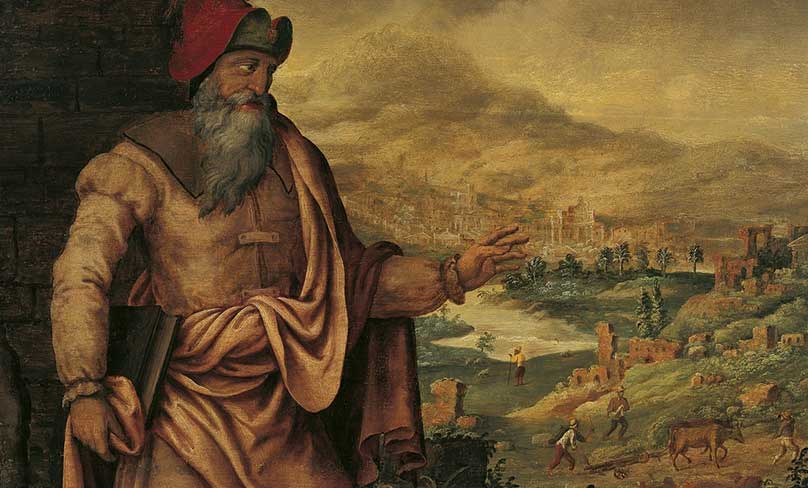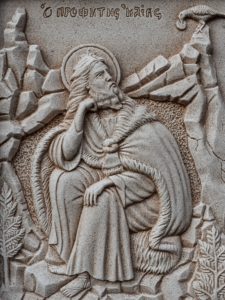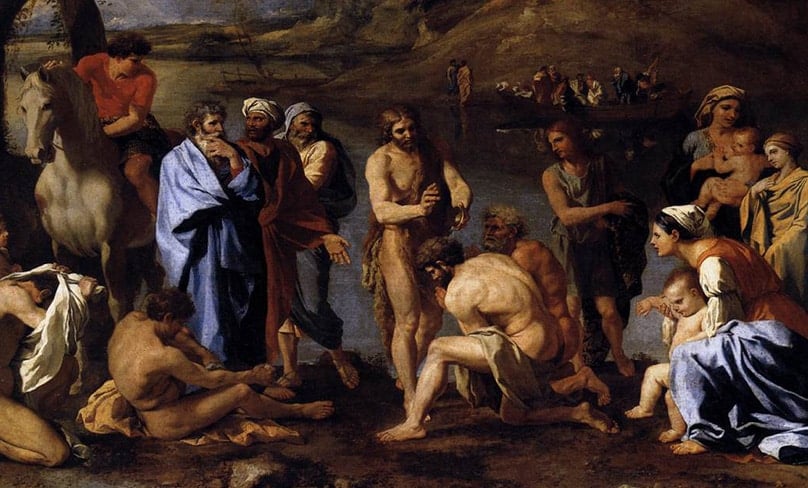
“Dear Father, I always thought a prophet in the Bible was someone who wrote one of the prophecies. But now I have heard that people like Moses and John the Baptist were also regarded as prophets. Can you please clarify this for me?
First, let us look at how we understand the word “prophet” in general. In everyday speech we usually understand the word to mean someone who predicts the future. So if someone says something that later came to be true, we say that his statement was “truly prophetic”. In the Bible, a prophet may sometimes predict a future reality but this is not his essential role.
The word “prophet” come from the Greek pro-phetes, meaning to speak on behalf of someone, especially a divinity. It has nothing to do with predicting the future, an activity described in Greek as mantis. The Hebrew word for prophet is nabî, meaning someone chosen by God to speak in his name. The prophet is thus an intermediary between God and the people.
The prophet’s role is indicated in these words spoken by God to Moses… ‘I will raise up for them a prophet like you from among their brethren; and I will put my words in his mouth and he shall speak to them all that I command him’.
The prophet’s role is indicated in these words spoken by God to Moses in the book of Deuteronomy: “I will raise up for them a prophet like you from among their brethren; and I will put my words in his mouth and he shall speak to them all that I command him” (Deut 18:18).
So important is it for the prophet to be faithful to what God has commanded him that God goes on to say: “But the prophet who presumes to speak a word in my name which I have not commanded him to speak, or who speaks in the name of other gods, that same prophet shall die” (Deut 18:20).
The Letter to the Hebrews too speaks of the prophet in this sense: “In many and various ways God spoke of old to our fathers by the prophets” (Heb 1:1). In the Nicene Creed we express this idea when we say that the Holy Spirit “has spoken through the prophets”.
Moses is often regarded as the greatest prophet of the Old Testament: “And there has not arisen a prophet since in Israel like Moses, whom the Lord knew face to face” (Deut 34:10).

Yet he did not write any of the books which we call prophecies. As is commonly taught, he did write the first five books of the Bible: Genesis, Exodus, Leviticus, Numbers and Deuteronomy.
As an institution, prophecy is considered to have begun during the early times of the monarchy, at the shrines to which the Israelites went for answers to their questions and to learn what God was asking of them.
In this sense Samuel, who anointed King Saul and King David and was a prophet at the temple of Shiloh (cf. 1 Sam 3:19-21), is considered to have been the earliest of the prophets (1 Sam 3:20). St Peter calls Samuel the first of the prophets to speak of the Messiah: “And all the prophets who have spoken, from Samuel and those who came afterwards, also proclaimed these days” (Acts 3:24). In addition to Shiloh, prophecy was an established ministry also at the shrines of Jericho, Gilgal and Bethel.
Others who did not write any prophetic works and whom the Bible itself calls prophets are Abraham (Gen 20:7), Miriam, the sister of Moses and Aaron (Ex 15:20), the 70 elders of the people (Num 11:25-29), and Deborah (Judg 4:4).
Still others who performed a prophetic role on occasion were Balaam, Gad, Nathan, Micaiah and Abijah. And, of course, figures like Elijah and his successor Elisha are regarded as important and very influential prophets.

St John the Baptist is regarded as the last of the prophets. Jesus himself said of John: “Why then did you go out? To see a prophet? Yes, I tell you, and more than a prophet. This is he of whom it is written, ‘Behold, I send my messenger before your face, who shall prepare your way before you’” (Mt 11:9-10). Naturally, Jesus himself, the very Word of God, is the greatest prophet, the one who would come after Moses, who passes on God’s message by everything he says and does.
As regards the prophets who wrote what is called the “prophetical literature” or “prophetical books”, they too spoke on behalf of God but recorded their message in writing. They are traditionally divided, based especially on the length of their books, into the four “major prophets” – Isaiah, Jeremiah, Ezekiel and Daniel – and the twelve “minor prophets” – Baruch, Hosea, Joel, Amos, Obadiah, Jonah, Micah, Nahum, Habakkuk, Zephaniah, Haggai and Malachi.
Related articles:
